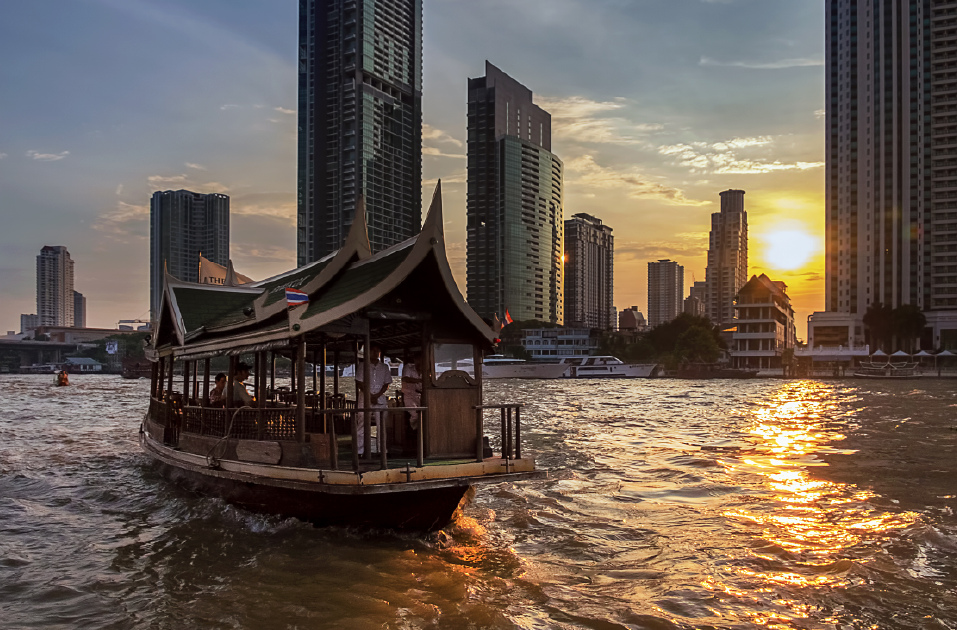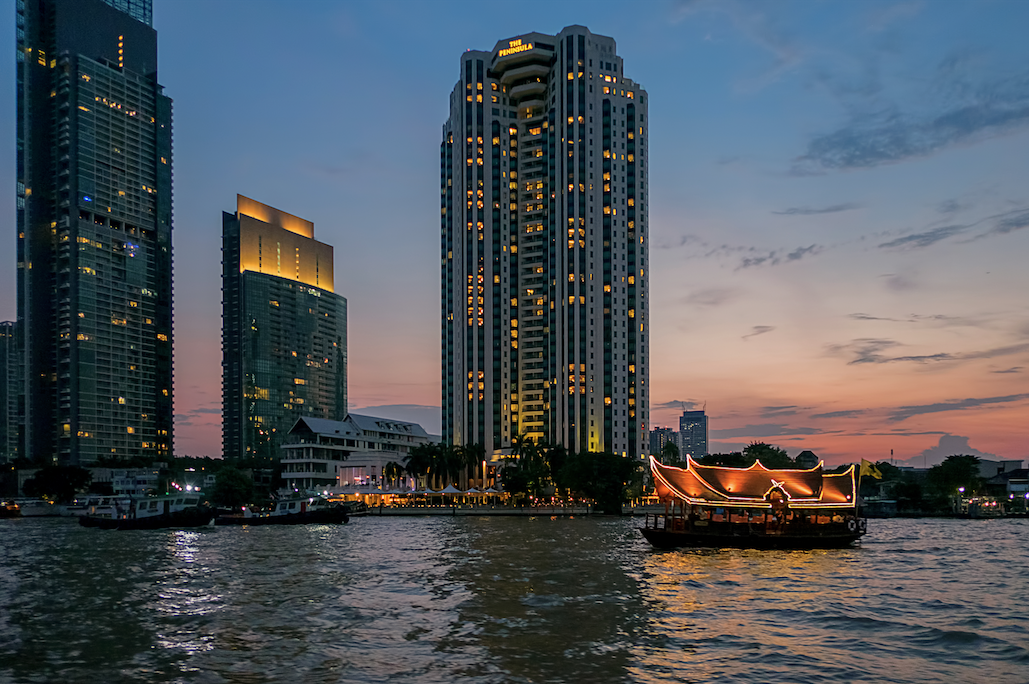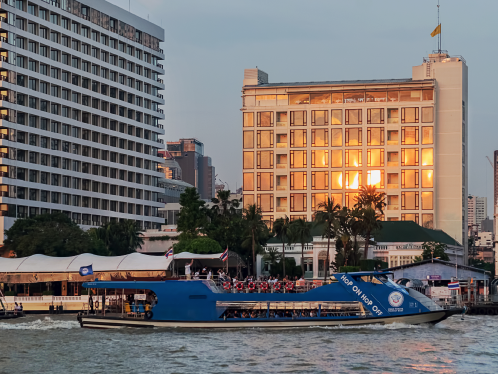| The Promenade Project will ruin the Chaophraya’s unique environment, says the opposition. The riverside is changing rapidly anyway, say supporters WORK on the controversial Riverside Promenade Project, which will add two seven-kilometre walkways to both sides of the Chaophraya River between Rama VII and Pink Lao bridges as the first phase of a much bigger, eight-part scheme extending some 140km to the Gulf of Thailand, has yet to begin. Those opposed to the multi-billion project – conservationists, architects, hotels, restaurant owners, civil groups and activists – have welcomed the pause as it gives them more time to strengthen their case, including court injunctions for violating planning regulations. Some opponents are even hoping that it will be suspended indefinitely. |
| The latter seems unlikely as the project was proposed by the current military government led by Prime Minister Prayuth Chan-o-cha with the approval of the Cabinet. Moreover, the Bangkok Metropolitan Authority (BMA), which is responsible for the project, has already been allocated the budget for the first phase. Delays are more likely due to finalising building contracts and dealing with the myriad official entities that control the waterway. Construction of the Promenade Project was originally scheduled to start in October 2015 and completed by 2020. The plan immediately fell afoul of civic groups and the public at large as it included a 19.5m-wide roadway. After a barrage of complaints about unwanted traffic and congestion along the banks of the ‘River of Kings,’ as the Chaophraya is also known, the BMA amended the design and reduced the width to 7-10m for a cycle lane and public footpath. Additional features like mini-museums, galleries and piers are planned at various points along the pathway, which will be built on hundreds of concrete pillars 3.5m above the water. The changes did not placate or satisfy the opposition groups, who want the project cancelled and the money to be spent on improving the various communities that currently exist on the banks of the river. Their arguments are convincing and far-ranging. They say that in the absence of a master plan, the project has not been adequately thought through and the opinions of those most affected by the changes have not been fully considered. They also claim that the promenade is unsightly and will destroy the city’s unique riverside environment and cultural heritage. They cite the importance of the Chaophraya in Bangkok’s historical development and its role as the city’s main tourist attraction. The construction will obscure numerous famous sights, including temples like Wat Arun, palaces and other religious structures. | Opposition groups additionally claim that the project will result in the demolition of communities, some of which have resided beside the river for generations. Others that remain will lose their privacy. Meanwhile, many of the hotels and restaurants located here will lose their views of the river, damaging their businesses in the process. Less navigable space will affect river transport and certain popular events. Most importantly, though, Bangkok will lose its charm, as the Chaophraya is seen as the capital’s heart and soul. But not everybody is against the promenade, and the counter-arguments are just as valid. Supporters point out that long stretches of the river are privately owned, allowing limited access to the public. The walkway and cycle lane will open up new areas to be enjoyed by all. Many of the riverside communities are in fact illegal since they have encroached onto the river itself. Right now, they add to the pollution and floating rubbish that is so very evident at certain points along the river. The first phase of the project is located on a stretch of the river that is seeing a proliferation of massive buildings that, it is argued, are rapidly changing the nature and character of the Chaophraya and depleting the charm that the opposition groups often mention. Sadly, some hotels here are discovering they can longer tell their guests they can enjoy, “glorious sunsets over the river” because recent giant riverside developments now block the view. And with no end to the number of other multi-storey projects planned here, the future is looking dim. Most hotels have raised terraces, well above the water line, so will therefore not be affected by the sight of people using the walkway. The most cogent argument put forward by the supporters group is that the promenade will allow greater and free public access to Bangkok’s most valuable physical asset. Unlike Thailand’s beaches, the banks of this nation’s rivers do not belong to the people, so every effort should be made to make them more available to the public, even it involves considerable cost. Suspicion probably exists within both camps concerning attempts to monetise the project. There is no doubt that powerful forces are at work to exploit the river’s natural advantages, which will ultimately mean ridding the riverside of its local communities to make way for modern developments. Whether this is more readily achievable with or without the promenade is another debate. |






















